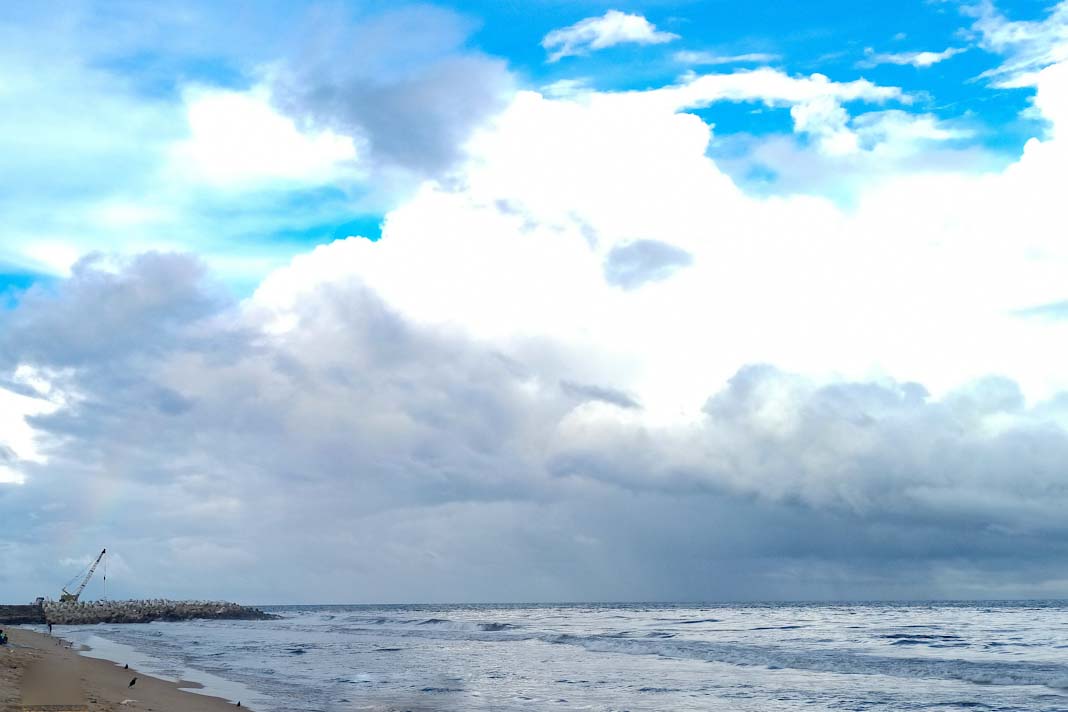As shipping sector leaders meet to discuss how to hit ambitious decarbonization commitments, a new report by a leading marine NGO warns that all targets are set to be missed unless the transformative change is embraced across the whole industry. The ‘One Planet Shipping’ report, published by Brussels-based Seas At Risk, reveals that drastic changes to the whole shipping ecosystem are a must if the United Nations-affiliated International Maritime Organization (IMO) is to hit its decarbonization goals of 30% by 2030, 80% by 2040 and complete decarbonization before 2050. The time for transformative change is now, reports Seas At Risk.
The maritime sector must align to halt climate change.
The shipping industry has a well-documented negative impact on climate change, contributing to 3% of all greenhouse gas emissions – equivalent to the annual emissions of Germany. Seas At Risk’s report puts forward a ‘one planet’ approach that looks beyond emissions to include the relationship between shipping, ports, consumption, and supply chains.
Fynn Sterritt, an Olympic sailor who represented Great Britain at the Paris 2024 Olympics, expresses the urgency for tackling pollution and climate change within the shipping industry, particularly given the stark reality of sailing at the Olympics in the polluted waters of the Mediterranean:
“As an Olympian who spends much of his life on the sea, I witness first-hand the problems of ocean pollution and disruption to the climate caused by global warming. The shipping industry is one cause of this crisis and is sailing straight into a future of ever-worsening extreme weather that threatens the lives of sailors and boats of every size. We urgently need a new vision for ‘one planet shipping’ which steers the industry to work within the biosphere’s ecological and climate limits. This report offers vital fresh thinking for us to set sail on that journey.”
This One Planet Shipping method would address shipping’s climate impact as well as ensure the fair treatment of workers, respect for communities most vulnerable to the impact of shipping, and promote ocean health to return to its once flourishing state.
Sailing towards sustainability
The One Planet Shipping report highlights a fundamental need for a shift in maritime industry governance. As the shipping sector transitions to greener energy solutions and more efficient technologies, local and regional governments must support the change. This can be done through modernizing port operations that allow them to handle new types of fuel, and to welcome more efficient vessels, such as those using wind power, to minimize their impact on the environment. Not only does this strengthen regional economies but it also sends a loud message to international policy-makers and bodies, such as the IMO responsible for regulating shipping, and other bodies dealing with international trade and development.
Port communities speak out for just and sustainable shipping.
An example of port developments happening across the planet, the port of Genoa – a major hub in the Mediterranean – has recently been linked to scandal and corruption. The expansion of the port to welcome colossal container ships, through the replacement of the existing dam, carries extreme environmental consequences: for example, the seabed has been dredged to welcome these giants, disrupting delicate marine habitats throughout the Mediterranean Sea.
While port hubs are vital, and at times critical to supply food to countries facing food insecurity, the One Planet Shipping report stresses that by prioritizing smaller ships and allowing for more compact, strategically located ports closer to the end destination, coastal communities can thrive. If ports, along with local and national governments, favor energy efficiency and reduce their environmental impact, they can breathe life into neglected coastal communities, creating jobs and revitalizing local economies.
Did you subscribe to our daily Newsletter?
It’s Free! Click here to Subscribe
Source: Marine Safety Investigation Unit















![[Watch] Crazy Power Needed to Move World’s Largest Containerships](https://mfame.guru/wp-content/uploads/2023/11/mfame-tanker-100x70.jpg)

